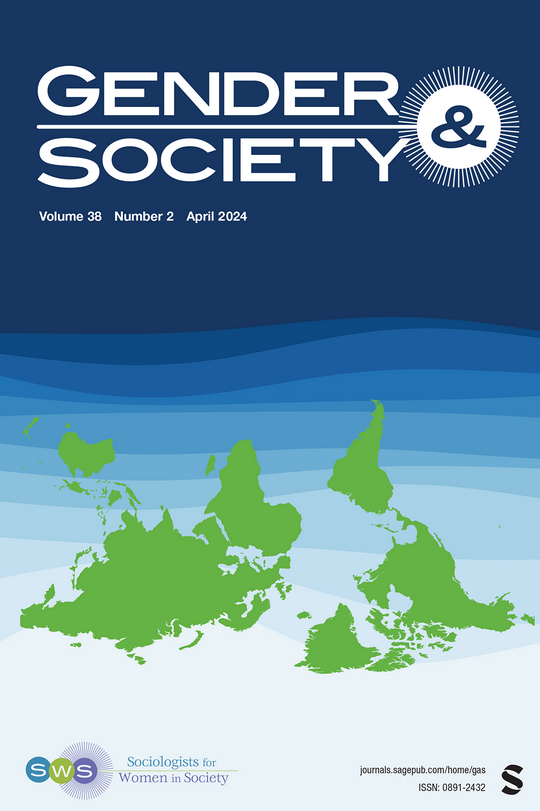Do the Marriageable Men want to Protect and Provide? The Expectation of Black Professional Hybrid Masculinity
IF 7.2
1区 社会学
Q1 SOCIOLOGY
引用次数: 2
Abstract
Gender ideologies are embedded in intersecting race, class, and gender systems. Yet Black masculinity is often defined one-dimensionally, without attention to class variation in gender enactment. Particularly, with regard to heterosexual partnering, representations of Black masculinity most often involve men enacting compensatory displays to account for having too little masculine capital to meet the dominant culture’s protector–provider prerequisites for accomplishing marital masculinity. Drawing from interviews with 42 never-married Black professional men, I explore their ideas about how masculinity ought to be done within the marital relationship—a critical site for the reproduction of gender inequality. Findings reveal that these men construct “Black professional hybrid masculinity” around a simultaneously racialized and classed compensatory strategy of masculine protection and equitable spousal sharing, resisting simple classification as either hegemonic or counterhegemonic. Rather, it is a distinctly hybrid masculine strategy. These men cherry-pick hegemonic gender norms to reconstruct gender identities that reaffirm their sense of manhood and idealize their future wives as symbols of hybrid femininity—work-devoted women who are also femininely in need of masculine protection. This research offers an intersectional extension of hybrid masculinity and illustrates the need for heterogeneous and context-varied theories of how Black men do gender.适婚男性想要保护和供养吗?黑人职业混合男子气概的期望
性别意识形态嵌入在交叉的种族、阶级和性别系统中。然而,黑人男子气概的定义往往是一维的,没有注意到性别法规中的阶级差异。特别是,在异性恋伴侣关系方面,黑人男子气概的表现通常涉及男性的补偿性表现,以说明男性资本太少,无法满足主流文化中实现婚姻男子气概的保护-提供者先决条件。通过对42位从未结婚的黑人职业男性的采访,我探索了他们关于在婚姻关系中应该如何表现男子气概的想法——婚姻关系是性别不平等再现的关键场所。研究结果表明,这些男性在构建“黑人职业混合男性气质”时,同时采用了一种种族化和分类化的补偿策略,即男性保护和公平的配偶分享,而不是简单地划分为霸权主义或反霸权主义。相反,这是一种明显的混合男性策略。这些男人精心挑选霸权的性别规范来重建性别认同,这些性别认同重申了他们的男子气概,并将他们未来的妻子理想化为混合女性主义的象征——投入工作的女性也需要男性的保护。这项研究提供了混合男性气质的交叉延伸,并说明了黑人男性如何性别的异质和背景变化理论的必要性。
本文章由计算机程序翻译,如有差异,请以英文原文为准。
求助全文
约1分钟内获得全文
求助全文
来源期刊

Gender & Society
Multiple-
CiteScore
9.70
自引率
3.60%
发文量
78
期刊介绍:
Gender & Society promotes feminist scholarship and the social scientific study of gender. Gender & Society publishes theoretically engaged and methodologically rigorous articles that make original contributions to gender theory. The journal takes a multidisciplinary, intersectional, and global approach to gender analyses.
 求助内容:
求助内容: 应助结果提醒方式:
应助结果提醒方式:


